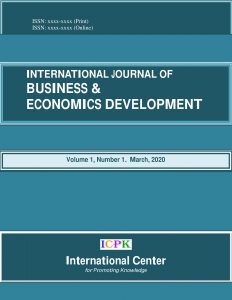Management of Migrant Manpower in Punjab Industry during Pandemics: (COVID 19) - A Critical Study
Navtej Singh Grewal, Sheetal Soi , Dr Dalvinder Singh Grewal
Abstract Preview
A sudden spurt of COVID-19 as a pandemic has shaken the world. The fear of the unknown is always the greatest. The what, why, how, where, when, and so on of the pandemic remained unknown, and the world was terrified of the unknown consequences. Workers are the most distressed, particularly those who have migrated from their birthplaces to distant lands to earn a living. The sudden scare hit their existence and they rushed back to their homes to have a peaceful burial at home rather than in foreign countries. It was more common in India, since a person from the lower or lower middle class always prefers to have their last breath in their homeland. Leaving their lucrative jobs, they rushed to their homes by whatever means they could manage, most of them walking for miles together. They left the work places high and dry, with the most hit being the industry. Punjab, the northernmost state of India, was the most hit since it relies on 80% of migrant labour. As it turned into an exodus, it became a great worry for the industry and studies were initiated as to how to control such a future exodus. This study is one such project which studies the management of migrant manpower in Punjab’s industry during pandemics.
Meta-Analytic Algorithmic Structure of the Mobility Habitus
Cruz García Lirios
Abstract Preview
Gross mode, mobility policies are inscribed in sustainable cities models, following the guidelines of the Earth Summits, but the effects of these policies have been little linked to transport systems and user identities. The objective of the present work was to establish a model for the study of the triad, policies, systems and transportation identities, centered on four habitus indicators, understood as effective social dispositions of the environment. A non-experimental study was carried out with a non-probabilistic sample selection from sources indexed to national repositories, considering the year of population from 2000 to 2019, as well as the concepts of “mobility” and “habitus”. There is a line of study regarding the comparison of mobility policies, transport systems and user identities to establish differences and similarities with the intention of anticipating ungovernability or governance scenarios.
